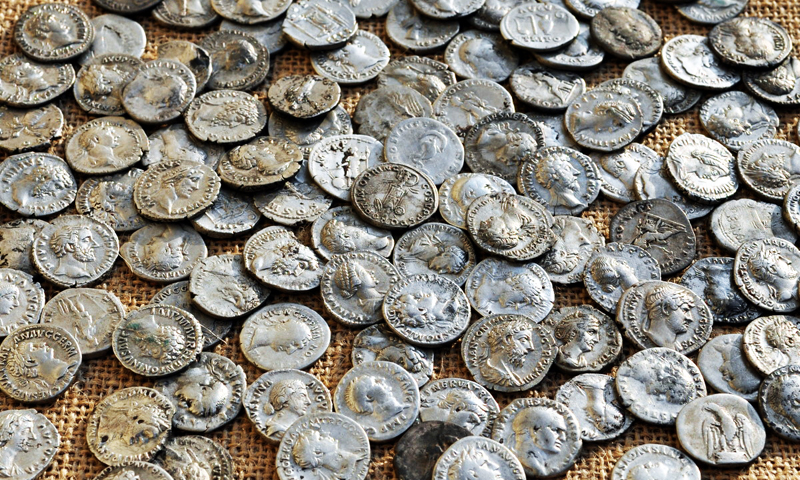
Finding Treasure
After so much history on these small islands, it is not surprising that people actively search with metal detectors for buried treasure and often find it. Does the saying “finders keepers” apply? No. Indeed, under the Treasure Act 1996 it is a criminal offence not to report finding treasure within 14 days of realising that your find qualifies as ‘treasure’ and you could even be fined and/or spend three months in prison!
As all the land ultimately belongs to the Crown, anything valuable buried in it is of interest to the authorities. In England and Wales it is the Portable Antiquities Scheme to which reports must be made; in Scotland the Treasure Trove Unit; and in N.Ireland the Treasure Registry. A major museum (e.g. the British Museum) then assesses the item (it must not have be cleaned by the finder) and a reward may be paid. The largest reward for any of the 10,000+ finds since 1996 was £4,300,000 for 2,584 silver pennies dating from the Norman Conquest dug up in a Somerset field in 2019.
Gold and silver content, rarity, untraceable ownership and age (over 300 years) are the key factors in designating an item as ‘treasure’. Fossils, bones and artefacts from wrecks fall into other categories.
(Image of Roman coins found in Shropshire: Benedict Pond at Wikimedia Commons / CC BY-SA 4.0)
